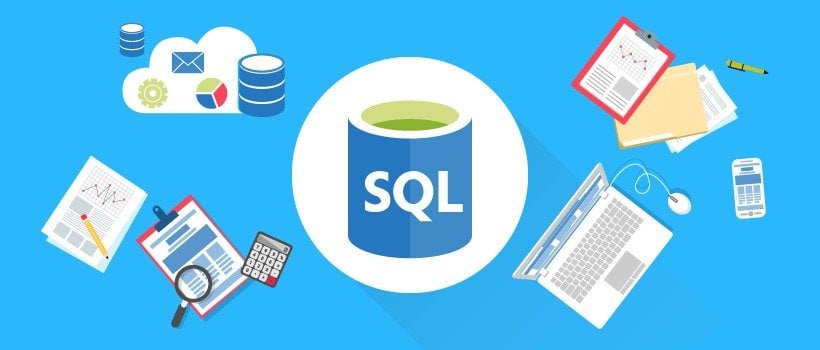
After learning HTML and CSS, you should consider SQL as your next target. If you wish to manage relational databases and their data, get some SQL training since it has been acknowledged as the standard language for such systems.
So what does SQL stand for? It's an abbreviation for a Structured Query Language. Therefore, even though it's described as a programming language, developers often refer to it as a query language.
SQL allows people to store and manage data in relational databases. To learn SQL, you should know that commands are categorized into two groups of different types of commands.
- Data manipulation language (DML): used when you want to retrieve and change/update/delete data.
- Data definition language (DDL): responsible for the structure of databases.
In this tutorial, you will learn SQL basics – how to manage a database, perform essential commands, modify, delete, create, load, send files, and other useful operations.
The good news is that this query language is not that complicated: you can write commands the way you usually write in English.
Why You Should Learn SQL: Purpose and Use
A useful tool to consider is SQL developer, which is an integrated development environment of the Oracle databases. It is a free graphical user interface used for exporting data, running queries, debugging, testing, etc.
Therefore, SQL developer is used for managing database more efficiently: you will be able to perform tasks with fewer keystrokes.
We have already mentioned the basic commands like updating and deleting records, but this query language is also capable of more advanced procedures. This is a short list of the core purposes of this language:
- Record management: insert, delete and update records.
- Objects: create new objects in the system (tables, databases).
- Backup: create backups of databases.
- Permissions: handle permissions for tables.
- Data: import/export data in the database.
- Quick search: find the specific records you need from the database.
Furthermore, we should also mention the advantages of this language and give you a final push to learn SQL:
- No need to have any experience in programming!
- SQL can be used on different platforms: laptops, PC’s, servers, etc.
- Define permissions for databases: control who can view databases.
- A lot of data: effectively manage huge amounts of information.

- Easy to use with a learn-by-doing approach
- Offers quality content
- Gamified in-browser coding experience
- The price matches the quality
- Suitable for learners ranging from beginner to advanced
- Free certificates of completion
- Focused on data science skills
- Flexible learning timetable

- Simplistic design (no unnecessary information)
- High-quality courses (even the free ones)
- Variety of features
- Nanodegree programs
- Suitable for enterprises
- Paid Certificates of completion

- A wide range of learning programs
- University-level courses
- Easy to navigate
- Verified certificates
- Free learning track available
- University-level courses
- Suitable for enterprises
- Verified certificates of completion
Where to Start
You might feel confused as there are many specific SQL tutorials, discussing different features and commands, like syntax, select statement, aliases, etc. However, if you wish to plan your time efficiently and learn SQL, you should follow these steps to make your whole process more enjoyable and organized:
- Read the tutorials we have provided to you.
- Start with the short introduction to the syntax of SQL because you will use it to interact with tables.
- When you’re familiar with the main concepts and syntax, move on to more challenging advanced lessons.
- If you are interested or feel like you need more information on this subject, check out this video course.
What You Will Learn
You will learn the SQL syntax, its statements, and overall structure of the SQL language. With this information, you will be able to experiment with other features and slowly move on to more complicated stuff. You will learn how to create and alter tables; review all of the various functions and statements.
After you educate yourself about all of these aspects, you should consider trying one of our interactive courses. We recommend entering this specific course as it explains all of the principles in a very detailed manner.
 HTML
HTML  CSS
CSS  PHP
PHP  JavaScript
JavaScript  SQL
SQL  Bootstrap
Bootstrap  Solidity
Solidity  jQuery
jQuery  Git
Git  Chrome DevTools
Chrome DevTools  C++
C++  Python
Python 



